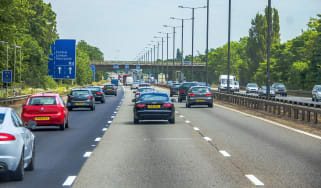What is a DSG gearbox? Problems, cost and cars with a DSG
DSG gearboxes are one of the most popular types of automatic gearbox, but should you buy a car with one?
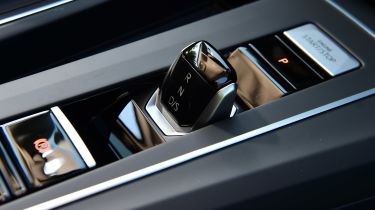
DSG gearboxes are one of the most popular types of automatic gearbox found in new cars today. They’re used in everything from humble city cars up to the latest, cutting-edge supercars, and have proven to be reliable, smooth and efficient. When choosing a new car, it’s important to understand the type of transmission it uses, so read on to find out more about DSG gearboxes and their strengths and weaknesses.
 Manual or automatic gearbox – which is best?
Manual or automatic gearbox – which is best?
DSG stands for ‘direct-shift gearbox’ and it’s a type of dual-clutch automatic gearbox. The ‘DSG’ name is specific to the Volkswagen Group – namely cars from Volkswagen, Skoda, SEAT and Cupra – but similar dual-clutch gearboxes are used by a variety of other manufacturers, including Ford, Hyundai and Kia. Between dual-clutches and DSGs, it may sound like a lot of technical jargon to remember, but it’s important to note that all dual-clutch gearboxes work and operate in fundamentally the same way, no matter which car they’re found in.
Read on to learn how to operate them, how reliable they are and if you should buy a car fitted with one. If you’re on the hunt for an automatic car, you can read our list of the 10 best automatic cars on sale today, as well as our guide to CVT gearboxes.
What is a DSG gearbox?
The DSG is a dual-clutch automatic gearbox which, as the description implies, is a gearbox with two clutches. This is different from a traditional, ‘torque-converter’ automatic, which uses a fluid coupling instead of a clutch. From behind the wheel, a DSG feels and operates similarly to a traditional automatic – there’s no clutch pedal to worry about and the computer takes care of gear changes – but the two systems work differently behind the scenes.
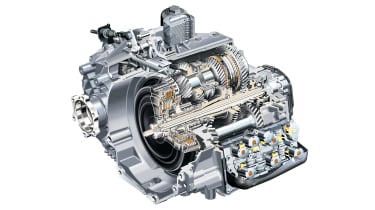
The benefit of using two clutches is that the car’s onboard computer can work out which gear you’re likely to need next and get it ready in advance. When it's time to change gear, the DSG switches near-seamlessly from one clutch to the other, shifting to the pre-prepared gear. In theory, this allows for much quicker and smoother gear shifts when compared to a traditional automatic.
The clever sensors in a DSG gearbox constantly measure a range of variables, including how fast you’re going, how hard the engine is working and the position of the accelerator to work out the optimum gear and shift point. How you’re driving and the driving mode you’re in (if your car has different modes) will also help the gearbox work out when to change; it can do so in just a few hundredths of a second.
In many cases – especially in more affordable cars – you’ll have to pay extra for a DSG gearbox over a standard manual gearbox, so it’s worth keeping that in mind if you’re on a tight budget. Dual-clutch gearboxes can be heavier too and, in some cases, be slightly less fuel-efficient than manual gearboxes – this, however, will depend on the car you buy. You may decide these are small sacrifices for the convenience of an automatic gearbox. Generally, we think DSG gearboxes are some of the best automatics on the market. Of course, there are many other things to consider when weighing up which car is right for you, but a DSG gearbox is certainly not a reason to be put off a particular model.
Are DSG gearboxes reliable?
Reliability is a key concern for many car buyers, and fortunately, DSG gearboxes have proven themselves to be very reliable. Failures occur rarely, although they’re likely to be expensive to repair. These relatively uncommon faults are usually found in older higher-mileage vehicles, and most of these early issues have been resolved in the latest DSG gearboxes. Signs of a faulty gearbox may be as obvious as a ‘limp mode’ warning restricting power, or juddering and noisy bearings when driving.
Don’t let the stories of failure put you off buying a DSG, especially one in a vehicle with well-documented service history. Almost all DSG gearboxes perform faultlessly, with some fitted to vehicles that have clocked up well in excess of 100,000 miles.
How do I drive a DSG gearbox car?
Driving a car with a DSG gearbox is as straightforward as driving any other type of automatic car. There’s no clutch pedal to worry about, and no need to change gears yourself – that’s all handled by the car’s onboard computer.
In the majority of DSG cars, you’ll need to put your foot on the brake to switch between neutral, park, reverse or drive. Releasing the brake in reverse or drive will mean the car starts creeping backwards or forwards respectively – this is deliberate, as it makes low-speed manoeuvring easier. Park should be used when you are leaving the car as it locks the transmission, but you’ll still need to apply the handbrake.
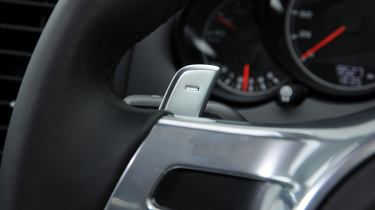
Some cars with DSG gearboxes offer a manual shifting mode that allows the driver to choose when to change gear themselves. Using paddles found on the back of the steering wheel, or sometimes using the gear selector on the centre console, the driver can shift up and down and the DSG will electronically select the gear. This can be useful when driving in adverse conditions like snow, when towing, or when you want to drive the car enthusiastically.
Which cars are available with DSG gearboxes?
DSGs, at first, were only available in Volkswagen Group cars like the original Audi TT, and you’ll still find most dual-clutch gearboxes in VW, SEAT, Skoda, Audi and Porsche models. The latter two use their own naming conventions – S Tronic and PDK, respectively – but the technology is the same.
If none of those take your fancy, Ford, Volvo, Nissan and MG all offer or have offered DSG gearboxes, which are often referred to by different names. Ford, for example, calls it a Powershift gearbox. Many modern hot hatches and high-performance variants of cars are now offered exclusively with a DSG transmission.
Interestingly, BMW had its own dual-clutch system called DCT (dual-clutch transmission), but more recently decided to switch back to a traditional automatic gearbox system. The reason for this is that dual-clutch automatics can be bulkier in size, so switching back to a traditional automatic meant the German manufacturer could fit an additional gear into the same size package to improve efficiency and fuel economy.
How much does a DSG gearbox cost?
Some cars are offered exclusively with a DSG, such as the Volkswagen Passat, but in most cases, especially in mainstream hatchbacks, it’s quite an expensive option. The cost depends on the type of car you buy and the manufacturer, but it will usually be more than £1,000. DSG versions of the Skoda Octavia, for example, cost around £2,000 more than the equivalent manual option.
What’s the difference between a DSG and other automatic gearboxes?
If you are comparing different types of automatic gearboxes, chances are you’re comparing different car companies too – most only stick with one type. The main difference is the DSG’s second clutch pack, which readies the next gear for fast and comparatively efficient shifting. That being said, some of the best traditional, ‘torque-converter’ automatic gearboxes are even smoother and quieter.
Some manufacturers, usually Japanese brands such as Honda, Toyota and Subaru, offer CVT gearboxes. CVTs (Constantly Variable Transmissions) don’t have different gears as such, and tend to prioritise efficiency over everything else. They tend not to feel particularly sporty, but they have benefits in certain applications. You can find out about their pros and cons by reading our guide to CVT gearboxes.
Frequently Asked Questions
Put simply, yes, DSG gearboxes are good. They’re some of the fastest-shifting and most efficient gearboxes on the market and have proven to be very reliable.
Car components made simple
Recommended
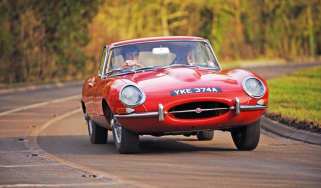
Classic car tax exemption: which historic vehicles qualify?
Most Popular
Tips & advice

Car dashboard warning lights: what does each symbol mean?

Electric car charging stations: public networks, charger types, apps and maps


